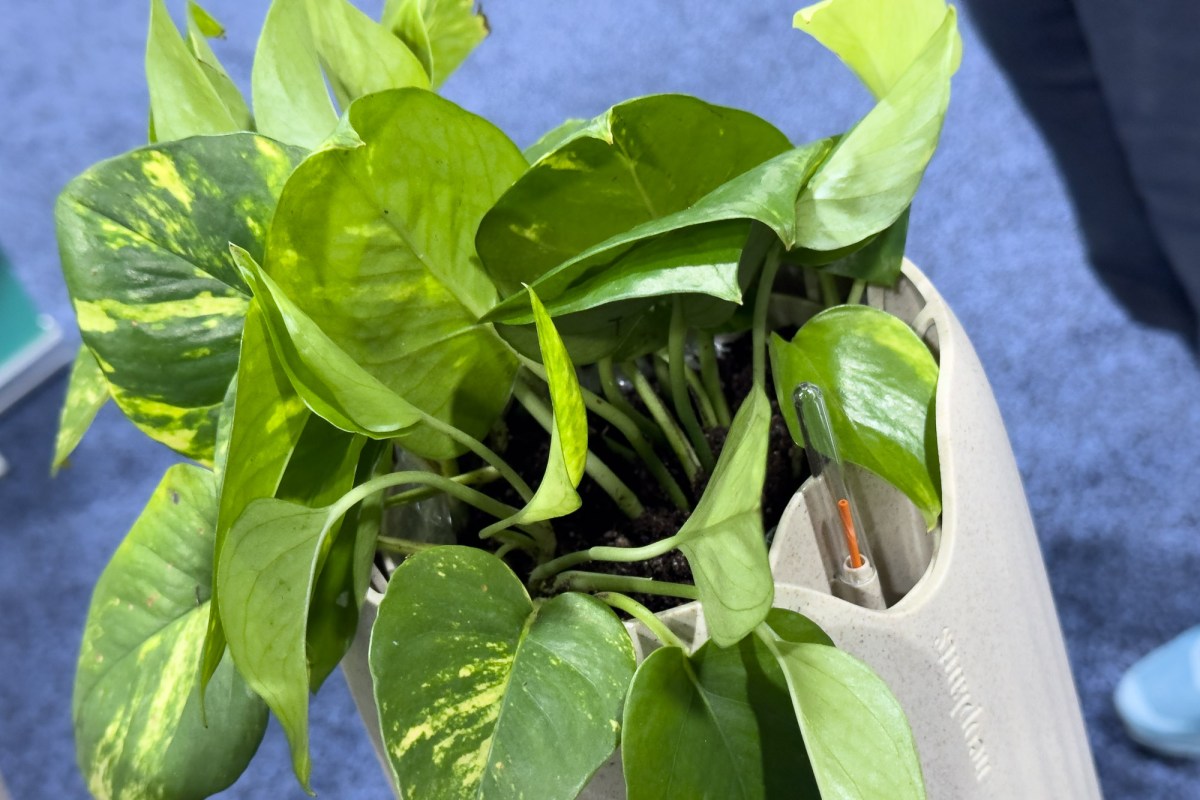At CES 2024, French startup Neoplants is showing off its progress with its houseplants that work as air purifiers designed for the home. The bio-engineered plants can, according to the company, replace 20 “regular” houseplants, as measured by how many pollutants the plants can remove from the air. Neoplants bioengineers houseplants to use them as […]
© 2023 TechCrunch. All rights reserved. For personal use only.
At CES 2024, French startup Neoplants is showing off its progress with its houseplants that work as air purifiers designed for the home. The bio-engineered plants can, according to the company, replace 20 “regular” houseplants, as measured by how many pollutants the plants can remove from the air.
The company was founded in 2018, and has raised $20 million or so to date (from investors including True Ventures, Heartcore, Entrepreneur First and Collaborative Fund). The company has been beavering away putting some hard numbers and research behind the efficacy of its green houseplanty friends.
The company showed charts and graphs showing that its plants are taking a sustainable and potentially game-changing approach to enhancing indoor air quality that may well spark a greener, cleaner revolution in our living and work spaces. Besides, they look a lot better than even the best-designed air purifiers out there.
Neoplants at CES 2024, showing how the plant is significantly more efficient than its non-modified counterpart at cleaning the air in this controlled experiment. Image Credits: Haje Kamps / TechCrunch
Going beyond the efficacy of common houseplants, Neo P1 addresses the critical problem of volatile organic compounds (VOCs) that pose health risks within our homes and offices. Developed using synthetic biology, this high-tech houseplant outpaces its unmodified counterparts, namely Epipremnum aureum — or “devil’s vine” as it’s ominously called among friends — significantly air-scrubbing qualities for substances such as formaldehyde and toluene, commonly found VOCs in homes.
The company claims that its plants are 20x more efficient at air-scrubbing than non-modified counterparts.
And personally, I’m just delighted that in a sea of blinking LEDs and AI-powered whatsits, I got to talk to a founder about a plant for a few minutes, reminding us that technology takes many shapes. And, of course, few can argue that this is a growth industry. Ahem.

Leave a Reply